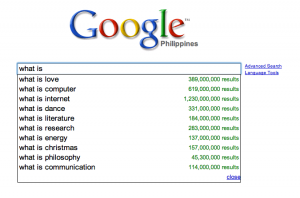A recent study by Harvard University shows that easy access to the web and search engines have actually taken a toll on how a person’s memory functions – and not in a good way. The study shows that when people know they can access certain facts or information online they are less likely to try to remember it. This situation is comparable to a scenario where if your significant other knows your mutual friend’s birthday, you rely on them to know it for you and thus store the person who knows the information as the information itself. The same works with the Internet; if you know you can find something online, you store the Internet in general as the information.
That’s the computer part, now for your phone.
Research from the University of Maryland has shown that people who are engaging in their cell phones are less likely to participate in “prosocial” behavior. The study shows that our need to connect with others is filled by connecting to our phone, or even thinking about our phones. People in the study who were merely asked to draw pictures of their phones also had a drop in prosocial behaviors.
As people I think we can relate to the truth in both of these studies. As someone who works in front of a computer, I run a Google search at least 30 times a day to either find out something new or to cross reference a fact. As for the second study, we’ve all been out with a friend who (instead of communicating with us) is playing on their Smartphone. It’s not exactly enjoyable, but apparently they psychologically can’t really help it.
To view the full article featuring memory and the Internet, click here.
To view the full article featuring smart phones and prosocial behavior, click here.
Image 1 via leighreyes.com, Image 2 via articles.nydailynews.com, Image 3 via limeworks.com.au



